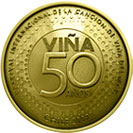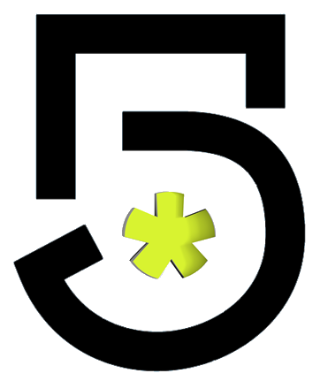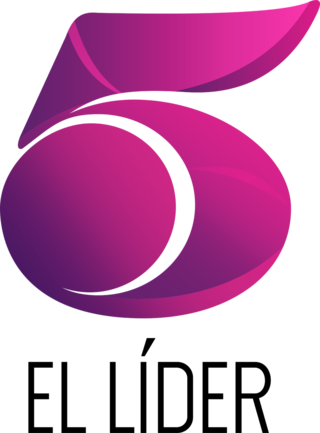
3/24 is a Catalan free-to-air television channel owned and operated by Televisió de Catalunya (TVC). It's the TVC's all-news network, launched on 11 September 2003.

Televisió de Catalunya is the public broadcasting network of Catalonia, one of the seventeen autonomous communities of Spain.

Canal 2 is a Nicaraguan free-to-air television network owned by Televicentro de Nicaragua, S.A., owned by the Mexican media mogul Remigio Ángel González. In theory, the channel's sister channels are those of Grupo Ratensa, but in practice, the channel is an independent operation with support from the Nicaraguan government.

Canal 4 is a state-run nationwide terrestrial television channel in Nicaragua owned by Informativos de Televisión y Radio S.A. (Intrasa), a company owned by two sons of Nicaraguan President Daniel Ortega, Carlos Enrique "Tino" Ortega and his brother Daniel Edmundo. Until 2007, Remigio Ángel González of Albavisión owned 94% of the channel's assets, after that, the Ortega-Murillo family regained control.
Television in Honduras consists of both local channels and foreign television, normally distributed through cable.

Telesistema Informativo is a television station in Tegucigalpa, Honduras, broadcasting on Channel 3 and Channel 7 in NTSC and is owned by TVC. The station has repeaters in La Ceiba and Puerto Cortés, also on channel 7. Until 2016, the channel had programs of news, entertainment, series, sports and movies.

The 2009 Viña del Mar International Song Festival was held from Monday 23 February until Saturday 28 February. This festival was the number 50, and had a special award for the 50 years, the "Gold Song", elected between the winner songs from 2001 to 2008 versions of Festival. Finally, "Gold song" in the folk contest was "Cuecas Al Sol", and in the international contest was "Ayer te vi".

SX3, styled Super3 until 2022, is a Catalan public television channel owned by Televisió de Catalunya in Catalan language. It started broadcasting on 18 October 2009. The channel's programs are aimed at children and teenagers. It is based on the programme Club Super3, that started on 11 February 1991 on TV3 and has been seen on El 33 and on K3.
Television in Latin America currently includes more than 1,500 television stations and more than 60 million TV sets throughout the 20 countries that constitute Latin America. Due to economic and political problems television networks in some countries of this region have developed less than the North American and European networks, for instance. In other countries like Colombia or Chile, television broadcasting has historically been public-broadcast dominated until the 1990s. The largest commercial television groups are Mexico-based Televisa, Brazil-based Globo and Canada-based Canwest Latin American Group. Due to the shared language of Spanish by two thirds of Latin Americans a lot of programmes and broadcasters operate throughout the region, offering both United States television and Spanish-language television.

Canal 5 is a Mexican free-to-air television network owned by TelevisaUnivision. It traces its origins to the foundation of Channel 5 in Mexico City in 1952. Canal 5's program lineup is generally targeted at a younger audience and includes cartoons, foreign series and movies, along with a limited number of sporting events such as NFL games, boxing, the FIFA World Cup and the Olympic Games.

Raggs is a live-action/animated television series for children about five dogs that form a Ragtime band called The Raggs Band. There are 196 half hour episodes and 200 original songs in multiple languages. It was originally produced in Sydney, Australia, with additional production in the United States in English and Spanish. It was first broadcast in Australia on the Seven Network on January 2, 2006. In 2014, The Raggs Band reunited to record 20 classic kid's songs.
Juana la Iguana is a fictional character, originally from the Spanish-language children's television series of the same name, which debuted in 1996 on home video. The Juana la Iguana TV show later aired on the following networks: Venevision (Venezuela), Telemicro, Televicentro, Televisa (Mexico), Televicentro (Honduras) Canal 5, Telemundo (US), Ecuavisa (Ecuador), Red Uno de Bolivia, and Canal 13 (Colombia).

Canal 5, is a Honduran terrestrial television channel, owned by the Ferrari family and operated by the Televicentro Corporation. Its first official broadcast was on September 15, 1959.
Asociación de Televisoras de Centroamérica y Panamá was a pan-regional broadcasting alliance composed of television channels from five Spanish-speaking Central American nations and Panama.
Grupo Ratensa is the Nicaraguan subsidiary of Albavisión, a Latin American media company owned by Guatemalan-Mexican-American businessman Remigio Ángel González. The company operates three main television channels—channels 9, 10 and 11—and previously had interests in channel 4, which González established with local Sandinista partners. In addition, Ratensa operates a network of radio stations. It claims to be "the most complete media network and the network with the widest reach in national television."

VTV is a Honduran commercial television station owned by Remigio Ángel González's Albavisión conglomerate.
TVC, formerly Televicentro, is an Ecuadorian television channel owned by Grupo El Comercio, itself owned by Remigio Ángel González's Albavisión conglomerate. The channel has existed in its current form since 2016, when González acquired two frequencies without prior government oversight. Its history, however, dates back to 1984, when it operated separately from Channel 4 in Guayaquil.
Telecadena 7 y 4 is a Honduran over-the-air television channel, owned by the Televicentro corporation. Its name is due to the two frequencies that the channel occupies to transmit nationally, VHF channel 7 of Tegucigalpa and VHF channel 4 of San Pedro Sula. It also airs program from Univision, El Gordo y la Flaca.















